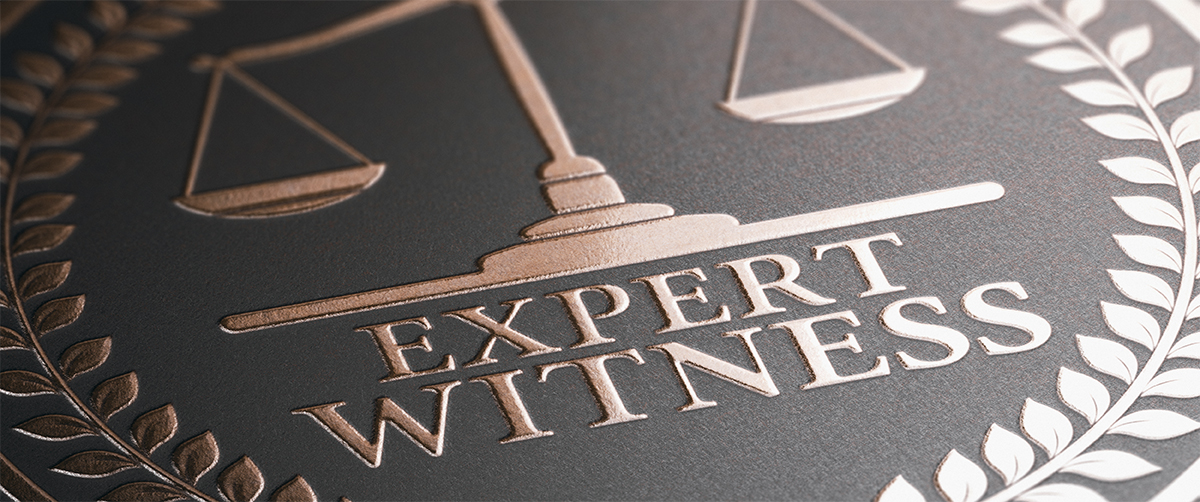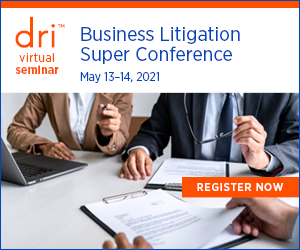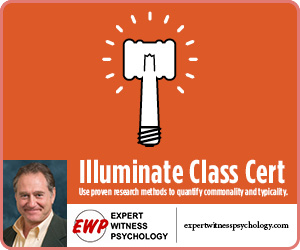From the Editor
The Real Problem with Testimony as to Legal Conclusions

By Patrick J. Kenny
Most practitioners have encountered in one form or another the so-called “rule prohibiting experts from providing their legal opinions or conclusions.” In re Initial Public Offering Securities Litigation, 174 F. Supp. 2d 61, 64 (S.D.N.Y. 2001) (further citation omitted). The “rule” has been described as “axiomatic,” id., and reportedly “every circuit has explicitly held that experts may not invade the court’s province by testifying on issues of law.” Id. (further citations omitted). Yet, well established rules often founder in their application to particular facts, and that seems to be true with the “rule” barring expert legal opinions and conclusions. In fact, it appears there are at least three reasons the “rule” proves difficult in application. Recognizing the same would assist litigants and courts in approaching such testimony.First, precedent is of limited value. Countless reported decisions seem to cite with approval what appears to be expert testimony as to particular legal opinions and conclusions. However, in truth, in many cases the expert testimony in question was admitted without objection “and often without anyone even noticing that the testimony includes legal conclusions[.]” Pitman Farms v. Kuehl Poultry LLC, No. 19-CV-3040 (ECT/BRT), 2020 WL 7425234, at *5 (D. Minn. Dec. 18, 2020). In the absence of an objection to the relevant testimony, a court’s reference to the evidence is of no consequence in later cases.
Second, the question as to whether an opinion rules afoul the “rule” often simply boils down to how the opinion at issue is presented:
Thus the question, “Did T have capacity to make a will?” would be excluded, while the question, “Did T have sufficient mental capacity to know the nature and extent of his property and the natural objects of his bounty and to formulate a rational scheme of distribution?” would be allowed. McCormick §12.
Fed. R. Evid. 704, advisory committee’s note.
To be sure, in some circumstances there will be no way to present the key aspect of the testimony without seeming to cross the line into impermissible legal conclusion. However, litigants on both sides would do well to recognize that, in many instances the proponent of the testimony in question has substantial control over the ultimate admissibility ruling and thus, in the right circumstances, can rehabilitate otherwise inadmissible legal opinion testimony.
Third, litigants and courts often overlook the fact that the “rule” against experts testifying to legal conclusions dates back long before the current rules of evidence. See, e.g., Roberts v. Cooper, 61 U.S. 467, 481, 15 L. Ed. 969 (1857) (describing the “rule” nearly 170 years ago, “the opinions of the Attorney General may form very persuasive arguments to the court, but cannot be read as evidence to the jury of what the law is, or ought to be. It is the province of the court to instruct the jury as to the principles of law affecting the case, and counsel cannot appeal to a jury to decide legal questions by reading cases to them, or giving in evidence the opinions of public officers”).
In fact, the Federal Rules of Evidence include no blanket proscription against legal opinions. See, e.g., Fed. R. Evid. 704(a) (“An opinion is not objectionable just because it embraces an ultimate issue”); Adams v. New England Scaffolding, Inc., No. 13-12629-FDS, 2015 WL 9412518, at *5 (D. Mass. Dec. 22, 2015) (“despite occasional judicial pronouncements to the contrary, there is no blanket prohibition on expert testimony concerning the law”).
Though the language of the former “rule” against expert legal conclusions still appears in case law, the basis for current rulings on the issue can be traced to the language of Rule 702. That Rule, among other things, permits expert testimony only if “the expert’s scientific, technical, or other specialized knowledge will help the trier of fact to understand the evidence or to determine a fact in issue[.]” Fed. R. Evid. 702(a). Thus, the reason expert legal conclusions are not admissible now—is not by virtue of a “rule” against such testimony—but rather is because such testimony often is not helpful to the trier of fact:
The essential problem is not that such an opinion is a legal conclusion, or that it concerns an ultimate issue, but that it would not “help” the trier of fact within the meaning of Fed. R. Evid. 702.
Adams, No. 13-12629-FDS, 2015 WL 9412518, at *7.
Practitioners facing testimony that might be considered expert legal opinion would be well-advised to keep all three points in mind when approaching such testimony. Thus, the proponent of the legal opinion testimony should endeavor to introduce the testimony in terms of the factual bases leading to the legal conclusion rather than the conclusion itself. See, e.g., Fed. R. Evid. 704, advisory committee’s note (quoting Professor Wigmore’s example “Did T have sufficient mental capacity to know the nature and extent of his property and the natural objects of his bounty and to formulate a rational scheme of distribution?” ). Doing so could avoid the issue entirely.
In addition, litigants should be mindful of dubious utility of precedent on this issue. Many prior decisions seeming to approve of testimony that includes legal conclusions often do not involve a direct challenge to the admissibility of the testimony in question. Moreover, even when the at-issue testimony was the subject of objection, practitioners must remember that the ruling on such objections is a matter of discretion. See, e.g., Lestage v. Coloplast Corp., 982 F.3d 37, 49 (1st Cir. 2020) (“Unless the district court entirely abdicated its gatekeeper role, we review the district court’s decision to admit expert testimony for abuse of discretion”).
Third, and most important, counsel should bear in mind that the admission of such testimony is governed by Rule 702. Arguments for and against the admission of such evidence ultimately will be judged against, and therefore should focus upon, whether the evidence in question “will help the trier of fact to understand the evidence or to determine a fact in issue[.]” Fed. R. Evid. 702(a).
 Patrick J. Kenny serves as the Editor-in-Chief of Daubert Online and served for many years as a member of, and Expert Witness Chair for the Steering Committee for, DRI’s Commercial Litigation Committee. He is a partner with Armstrong Teasdale LLP where he chairs the firm’s Class Action Practice Group, is one of the leaders in the firm’s Insurance Coverage and Litigation Practice Group, and is an active member in the Appellate Practice Group. He has received numerous recognitions for his insurance and commercial litigation practices including listing by Best Lawyers as the 2016 Insurance Law “Lawyer of the Year” in St. Louis. He also long has been listed as a “Super Lawyer” by Missouri/Kansas Super Lawyers / Super Lawyers Business Edition, he has an AV rating in Commercial Litigation and as an Appellate Lawyer by Martindale-Hubbell and American Lawyer Media (ALM), and he is included in Chambers USA’s listing of America’s Leading Lawyers for Business in its Missouri insurance listing. He previously served as a judicial clerk to the Hon. Pasco Bowman (U.S.C.A., Eighth Circuit). He handles complex litigation and appellate matters including bad faith and insurance coverage disputes, ERISA litigation (both pension and benefits), statutory actions, and matters involving fraud, non-compete agreements, and trade secrets. He has tried jury cases to verdict in Missouri and Illinois, handled and supervised numerous appeals, and served as a neutral in scores of cases. He can be reached at Armstrong Teasdale LLP, 7700 Forsyth Blvd., Ste. 1800, St. Louis, Missouri 63105, (314) 552-6613 (direct), (314) 612-2262 (direct fax), email: pkenny@atllp.com or pkenny@armstrongteasdale.com. For further information see his bio at: https://www.armstrongteasdale.com/patrick-kenny/.
Patrick J. Kenny serves as the Editor-in-Chief of Daubert Online and served for many years as a member of, and Expert Witness Chair for the Steering Committee for, DRI’s Commercial Litigation Committee. He is a partner with Armstrong Teasdale LLP where he chairs the firm’s Class Action Practice Group, is one of the leaders in the firm’s Insurance Coverage and Litigation Practice Group, and is an active member in the Appellate Practice Group. He has received numerous recognitions for his insurance and commercial litigation practices including listing by Best Lawyers as the 2016 Insurance Law “Lawyer of the Year” in St. Louis. He also long has been listed as a “Super Lawyer” by Missouri/Kansas Super Lawyers / Super Lawyers Business Edition, he has an AV rating in Commercial Litigation and as an Appellate Lawyer by Martindale-Hubbell and American Lawyer Media (ALM), and he is included in Chambers USA’s listing of America’s Leading Lawyers for Business in its Missouri insurance listing. He previously served as a judicial clerk to the Hon. Pasco Bowman (U.S.C.A., Eighth Circuit). He handles complex litigation and appellate matters including bad faith and insurance coverage disputes, ERISA litigation (both pension and benefits), statutory actions, and matters involving fraud, non-compete agreements, and trade secrets. He has tried jury cases to verdict in Missouri and Illinois, handled and supervised numerous appeals, and served as a neutral in scores of cases. He can be reached at Armstrong Teasdale LLP, 7700 Forsyth Blvd., Ste. 1800, St. Louis, Missouri 63105, (314) 552-6613 (direct), (314) 612-2262 (direct fax), email: pkenny@atllp.com or pkenny@armstrongteasdale.com. For further information see his bio at: https://www.armstrongteasdale.com/patrick-kenny/.














